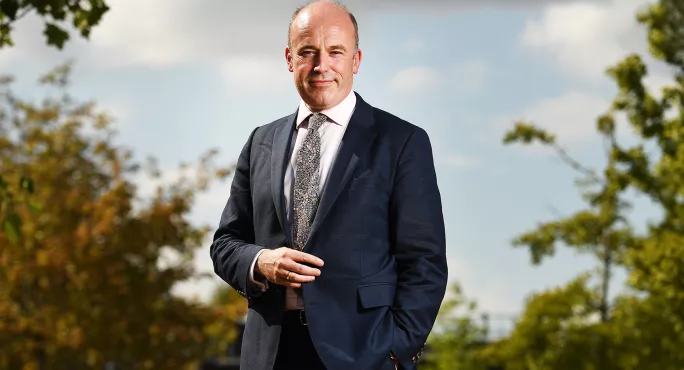Pension row: MAT chief says unions should trust teachers

The chief executive of the biggest multi-academy trust has defended plans to introduce an alternative pension scheme, saying union leaders should trust teachers to make good decisions for themselves.
In an open letter to education staff unions, Sir Jon Coles, chief executive of United Learning, said the new pension scheme could “out compete” other employers and bring more teachers into the profession.
The plan has been strongly criticised by unions, with the NAHT school leaders’ union calling for an urgent virtual meeting today for its members working in United Learning academies.
The chief executive of the MAT - which has 90 schools across the country - has said that a “growing number of staff are opting out of the Teachers’ Pension Scheme [TPS] because it is too costly for them”.
His letter to the general secretaries of the Association of School and College Leaders (ASCL), the NAHT and the NASUWT and NEU teaching unions says that staff would be given access to independent financial advisers. He adds: “We trust our teachers, as I think you should, to make good choices for themselves, and see no reason to think that anyone else should deny them a perfectly legitimate choice.”
Sir Jon told staff last week that the trust would introduce a new pension option that would allow staff to earn more take-home pay.
The plan, which will be introduced next year, will mean some early career teachers’ salaries will be boosted to £45,000.
Unions’ ‘shock’ at teacher pension plan
Leaders of the ASCL, NAHT, NASUWT and NEU wrote to Sir Jon to voice “shock and dismay” at the plan for an alternative pension for teachers.
In their letter they say the plan “will clearly not improve the overall pay of your staff, nor will it provide younger workers with the foundation for a decent pension and retirement”. Union leaders describe the plan as a prime example of “robbing Peter to pay Paul”.
Unions have urged the newly appointed education secretary, Bridget Phillipson, to intervene in what they term a “wrong-headed and divisive move”, and have called for an “urgent meeting”.
Former Department for Education adviser Sam Freedman has said it would be in the government’s interest to allow the plan because it “will help Labour meet their recruitment pledge”.
Writing to trust staff this month, Sir Jon said that while the TPS was a “very good pension scheme”, it had now become expensive.
- United Learning: MAT boosts teacher pay to meet living costs
- Teacher pensions: Everything you need to know
- Investigation: How trusts use their freedom on teacher pay
The letter, which was posted on X, formerly known as Twitter, states: “We therefore want to offer you a choice to have more of your remuneration as pay and less as pension, if you prefer this balance.”
Sir Jon said the option “could be appealing to new graduates not currently thinking about teaching” and could make a teacher role “very competitive with other professional graduate jobs”. He added that the switch would be optional.
In his new letter to union leaders, Sir Jon says: “Our proposal gives us the potential to out compete a number of employers for a talented new cadre of teachers to teach in our schools.”
Sir Jon adds that even if just a “few hundred new teachers” were brought into the profession by the plan, it would be beneficial.
And he claims that a “growing number of staff” are opting out of the TPS because it is “too costly”, saying that 10 per cent of the trust’s teachers under 40 have done so.
“At present, they are left with no employer contribution to pension. Our proposal would solve that problem by allowing them to have a pay rise and also have 10 per cent employer pension contributions,” he says.
United Learning has used its reserves to fund a higher pay rise for teachers than the 6.5 per cent awarded by the government because of the cost-of-living pressures faced by staff.
For the latest education news and analysis delivered directly to your inbox every weekday morning, sign up to the Tes Daily newsletter
You need a Tes subscription to read this article
Subscribe now to read this article and get other subscriber-only content:
- Unlimited access to all Tes magazine content
- Exclusive subscriber-only stories
- Award-winning email newsletters
Already a subscriber? Log in
You need a subscription to read this article
Subscribe now to read this article and get other subscriber-only content, including:
- Unlimited access to all Tes magazine content
- Exclusive subscriber-only stories
- Award-winning email newsletters
topics in this article



